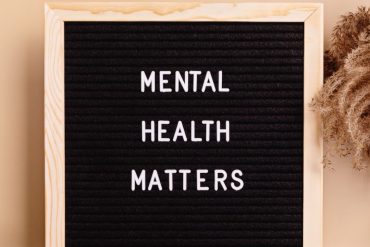At the end of a tough day, the easiest thing to do is switch off and throw on some Netflix. But, are we doing our brains any favours with that routine?
It’s common knowledge that physical exercise at least three times per week is advisable for overall well-being, longevity and prevention of decline. However, the notion of training the mind on a similar regimen may seem odd to many.
Where does one start? And if you’re asking yourself, “can I really add on more thing in my routine?” – this is a good one to consider.
Okay, so more crosswords and Sudoku?
Not quite. When training the mind, crosswords and other puzzles can be helpful in cognition however, they’re limited in scope. A major study in the British Medical Journal found that crossword puzzles and Sudoku could boost mental ability in specific ways, they had no influence over mental decline as people age. Skills trained in these activities are very specific and eventually a ‘plateau’ is reached where progress is limited.

Enter, cognitive training
Recent research published by Edith Cowan University examined 26 peer-reviewed studies found two programs that reached their gold standard in scientific backing; these are CogniFit and BrainHQ.
After reviewing close to 8,000 studies, reviewers at the Unviersity of Western Australia stated that CogniFit possessed the highest level of evidence showing concrete effects of brain training in healthy ageing. CogniFit can be calssified as a cognitively preventative program for dementia, i.e. a serious game that keeps the player cognitively engaged and slows down the symptoms of dementia.
For just 15-20 minutes every other day, it’s 100% worth the time to make sure you’re contributing to your body and mind’s overall well-being.
What other factors affect brain decline?
A major one is hearing loss. What does cognitive training have to do with audiology you may ask? The answer is plenty!
Consider your ability to hear in background noise, this involves separating the target signal from distracting noise, an interplay between pattern recognition, selective attention and short-term memory. The most common forms of hearing loss result in a loss of perception of many higher pitch consonant sounds which requires input from the visual system to ‘fill in the gaps’ with body language, facial expression and lip movement, a considerable and multifaceted cognitive task.
There’s a growing body of evidence about the impact hearing devices have on cognition, including a major review whereby the Lancet Journal recognise hearing loss as the #1 preventable risk factor for the prevention of dementia.
If you are concerned about your own or a family member’s hearing loss, please get in touch with Andrew Campbell and the Neuaudio team at 1300-418-852. Make an appointment or register for an upcoming seminar to learn more.
About Neuaudio and Andrew Campbell
Andrew Campbell is leading audiologist in hearing health care, certified in audiological sciences. He is a speaker, teacher, manager, philanthropist and innovator. His influence in the audiology industry stretches across the world with recognition and patient treatment. He was a founding member of one of the largest hearing health care groups in the country, the founder of Campbell Cosmetic Hearing, Nueaudio – Hearing & Brain Health the Gain Hearing Network, an organisation dedicated to supporting independent private practices in Australia. He is a member of the Australian College of Audiology. Furthermore, Andrew Campbell has been recognised multiple times as a leader in industry and integrity for his work in Australia, New Zealand, Taiwan, Hong Kong, Singapore, Malaysia and the USA.





